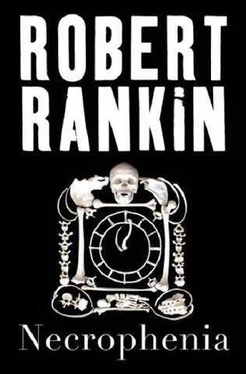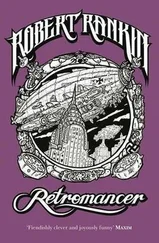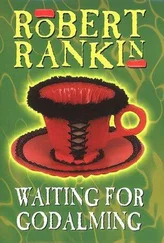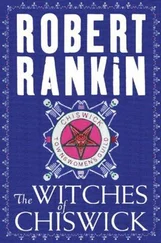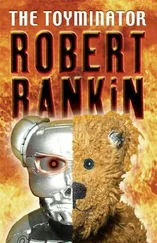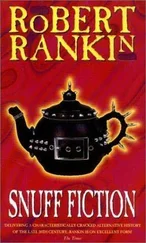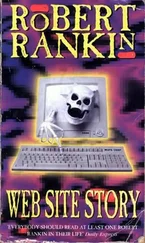And this line of thinking set me to thinking of something else. So to speak. And had this been an animated cartoon rather than real life, you would have seen, at this point, a little light bulb materialise above my head and frantically start flashing.
And the word ‘IDEA’ might even have appeared within it.
And there might also have been heard the sound of a bell ringing. Flash and Ding and IDEA. Just like that.
Because I was in New York. And New York was the home of the private detective. Los Angeles was too, of course. But not really. Los Angeles was the home of the private detective in the Hollywood movies, because the studios were all in Los Angeles and if they shot the movie in LA they didn’t have to travel, or pay the cast and crew’s hotel costs. Cheapskates!
But this was New York. And New York was the home of the private eye. In fact, the real Lazlo Woodbine lived and worked in New York. Or at least had, in the nineteen-fifties. P. P. Penrose based his Lazlo Woodbine thrillers on a real-life New York private eye and I wondered, just wondered, whether this fellow was still practising his craft. And if so, whether he might care to take on an English sidekick for a couple of weeks, at no charge to himself. It would be a dream come true for me, to work with the legend that was Woodbine. But hold on! Even better than that! Although the great Lazlo Woodbine might not take to some complete stranger (no matter whether or not he had experience in the field of Private Eyedom) trying to muscle in on his field of activity, he would never refuse a commission. Especially from a stylishly clad Englishman. If I were to offer him a job, then he would work for me. And how cool would that be?
Very cool, that’s how.
That little light bulb over my head grew burning, burning bright.
And popped.
I awoke early on what I recall was a Monday morning, dressed in modish black, stepped carefully between the bits of groupie that were scattered about my room and left the Pentecost Hotel.
I knew that Laz had his office somewhere in Manhattan and that he drank in a pub called Fangio’s Bar, where he regularly sat and chewed the fat with Fangio, the fat-boy barman. And talked the toot also. Because talking the toot was something that Laz and Fangio did in a manner that surpassed any other toot-talking, past, present or future. And if he was still in business, then he was bound to be in the telephone book.
Now, I’m sure you’ve noticed it in Hollywood movies, so I will not dwell upon it here, but isn’t it odd how all American telephone numbers begin with 555? What is that all about?
In a public phone booth, which didn’t have a door and looked very much like the record booths they had in the Squires Music shop in Ealing Broadway, I beheld a telephone book.
It had pages missing and smelled somewhat of wee wee – but the vandals who had been abusing it had not got as far as the classified section. And so I ran my finger down the list of private eyes.
And I saw him! Large as life!
Lazlo Woodbine Private Detective 2727 27th Street 555 272727
Result!
And just two blocks away. I could walk it.
And so I did. For those who don’t know New York, allow me to explain to you about it. New York divides itself into quarters. You have your Irish Quarter, your Latin Quarter, your Trinidadian Quarter and your Tierra del Fuego Quarter. And many many other quarters, all to do with commerce. These quarters are also called districts. So you have your Slaughterhouse District, Fashion District, Tiger’s Eye Pottery District, et cetera and et cetera. So, once you have a map of New York with all these quarters/districts marked upon it, you can’t go wrong. And at least you know where everything is. And there is a quarter for everything in New York.
Twenty-Seventh Street is the Detective Quarter. It’s just past the Gay Plumbers’ Quarter, but before you reach the Elvis Impersonators’ Quarter. Depending upon which way you approach it, of course.
I really really liked 27th Street. It may have changed now, of course, but back then, in the heyday of private detectivedom, it was the place (for private detectives) and it was very seedy indeed. It was all run-down ‘brownstones’ and crumbling nineteen-thirties Art Deco office blocks. There were alleyways a-plenty and each owned to its fair share of cast-iron fire escapes with those retractable bottom sections. And trashcans and the rear doors of down-at-heel nightclubs. And each and every one of these alleyways echoed softly to the music of a solitary saxophone. Sweet.
I did most approving noddings as I strolled along 27th Street.
And then I saw it, and, I kid you not, my heart skipped a beat. It was Fangio’s Bar and it was open.
The neon sign flashed out its message and the shatter-glass door opened before me at my touch. And then I was there, in that very bar immortalised by the poignant pen of P. P. Penrose.
Long and low and loathsome was Fangio’s Bar. With photographs of boxers all framed up on the walls. And a lengthy bright chromium bar counter that ran the lengthiness of the room (on the left, looking from the front door). There were bar stools, there were booths, and there, behind that bar counter, he stood. It had to be him: Fangio, the fat-boy barman of legend.
I straightened up my shoulders, disguising my scholar’s stoop, dusted non-existent dandruff from said shoulders and nonchalantly made my way to the bar.
Fangio was stuffing olives. Into an old army sock.
He looked up from his doings and I caught his eye.
‘Out of this bar,’ quoth he.
‘Excuse me?’ I said, with politeness, as I viewed Fangio.
He was somewhat broader than he was long, having about him a respectable girth. Yet although his belly was running to fat, his feet weren’t running anywhere. He stood four-square upon the floor of his bar, a man amongst men and a titan. Bald of head and bulbous of nose and, ‘Out of this bar,’ quoth he.
‘Excuse me, sir?’ I said, this time eager to show my respect.
‘This is a non-denominational bar,’ said Fangio, ‘and I don’t want any trouble.’
‘I think there must be some misunderstanding,’ I said.
‘Some?’ said Fangio. ‘I think you will find that in this bar there is a very great deal of misunderstanding.’
‘Will I?’ I asked.
‘There’s just no telling,’ said Fangio. ‘But tell me this, while you are still here, do you think that if I were a woman, it would be a viable proposition for me to give birth to myself? When cloning is finally perfected, I could then self-reproduce. It would be the next best thing to immortality, don’t you think?’
‘You have me on that one,’ I said, ‘because I do not have the faintest idea what you are talking about.’
‘A likely story,’ said Fangio.
And I just shook my head.
‘Perhaps we have got off on the wrong foot,’ said Fangio.
‘Perhaps we have,’ I agreed.
‘So let me put it in a more straightforward way. Get out of my bar, Mr Doctor of Death, or I shall be forced to shoot you.’
‘It’s definitely a misunderstanding,’ I said. ‘I am not a doctor of any sort.’
‘Oh, I hate it when that happens,’ said Fangio, and he tied up the neck of his army sock with a Gordian knot that he formed from a sinister shoelace. ‘There are always so many official forms to fill in after the shooting.’
‘I’m not a doctor,’ said I.
‘But you are dressed as a Swiss doctor of the Anabaptist persuasion. And that fails to satisfy upon so many levels.’
‘I thought this was a Jewish coat,’ I said.
‘A Jewish coat?’ And Fangio took to laughter. And with considerable gusto he took to it. He placed the now-knotted sock onto the bar counter, placed his ample hands upon his ample belly and laughed himself fit-to-go busting.
Читать дальше
